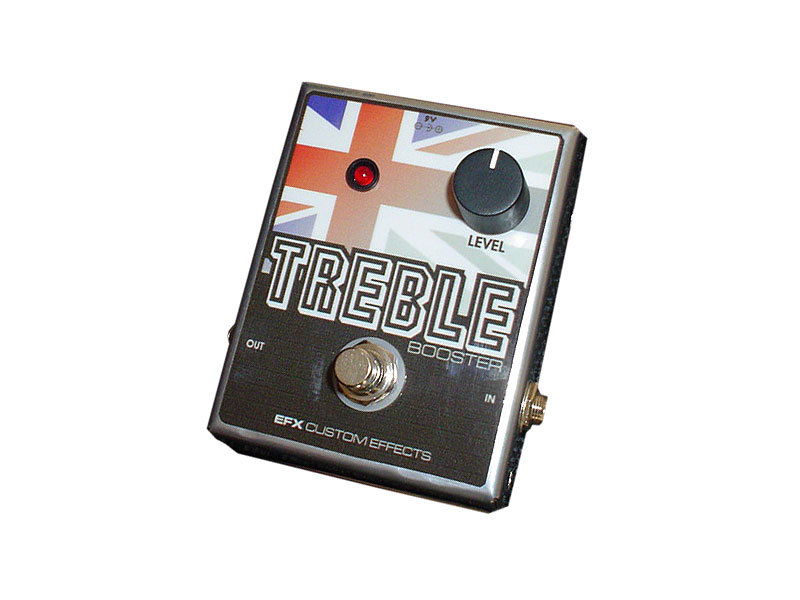But there won't be "audio problems"? I mean, the quality of the sound will be the same?
Announcement
Collapse
No announcement yet.
Big Muff in Small Spaces
Collapse
X
-
No, not at all.
That rating in a way is a guarantee of consistency, it might even not be possible to make them in a lower voltage value
Ceramic caps are basically made out of a disk of ceramic material, with some metal deposited on each face.
Capacitance will increase with surface, and decrease with separation (ceramic disk thickness).
Here's a common 0.1uF x 50V ceramic capacitor.
Size? ... around 10mm diameter
And what does 50V mean? ... that the ceramic disk will not be perforated even if you apply 50V DC to terminals.

Now if they wanted to make a 50V cap, same ceramic material and thickness, but value 470pF , some 470/100000 ~ 200 times smaller, it will need to have 200 times less surface, which means ~15 times less diameter .
The cap should be 10mm/15=0.67mm diameter .
Not impossible, and maybe some SMT caps are that small, but very impractical, definitely so for through hole or hand applied parts.
Now you know that a generic 470pF cap is around 5 mm diameter.
How do they achieve low capacitance if the diameter is so high?
Math says it should be around 0.025uF or so (in fact there are such capacitors that size) .
What they do is alter the other parameter: they increase ceramic disk thickness to achieve lower capacitance.
Does it have another side effect?
Yes, it will increase voltage handling ... big way
There you have it.Juan Manuel Fahey
Comment
-
Some examples of what you can achieve printing (or having them printed at a Graphics Shop) on self adhesive paper/vinyl.
Maybe you were thinking something simple like this, what you can get on a home laser:

Boutique (there called Handmade) pedals are BIG in Brazil, because customs tariff is high (good for them, they protect local work) so there's literally hundreds of young Musicians making pedals on the kitchen table, they use this method because of small scale of production, but they became VERY creative:




for more ideas, visit:
https://www.google.com.br/search?q=p...IVxg2QCh3oSwe4
there's even a bunch of guys which use only sardine (or tuna) cans:

 Juan Manuel Fahey
Juan Manuel Fahey
Comment
-
Hi,
Would these 1N914 Vishay, diodes, diodi DO-35, 10pcs. | eBay diodes work on this pedal? I'm not so good at electronics and I'm not sure...


Thanks to everyone
Comment
-
No, because you are not dropping 9V across that 100 ohms resistor, but about 1V or less.Originally posted by Dave99 View PostAlso, for resistors I should use 1/2w for each + 1w for the 100ohm ones... I use this formula:
watt = [9v(power) / 100ohm (for example)] * 9volt = 0.81w --> so at least 1w...
Am I right?
Had a quick look and you can build that pedal with 1/4W`resistors, some of them 1/8W go figure.
You chose a very small enclosure, you will never ever fit 1/2W , even less 1W resistors there.
As of the 1N914 diodes, as long as the part code matches (it does) , they will work as expected.
EDIT: practical example.
The resistors which dissipate most are the ones which have high voltage end to end and high current (so they have low resistive value), in this case the 12k resistors drop roughly 4.5V .
P= V^2/R= 4.5* 4.5 /12000 W=0.0017W = 1.7 milli Watts
The 100 ohms resistors dissipate 120 times *less* than that, we are talking micro Watts.
So I confirm that even 1/8W resistors are fine.
We use such large sized ones simply for convenience, smaller ones are not common and are hard to see or use; they do appear , though, inside ICs.Last edited by J M Fahey; 08-14-2015, 07:09 PM.Juan Manuel Fahey
Comment
-
Yes, think I'm gonna build other pedals I'm now building my first pedal and my first guitar (strato 😍
I'm now building my first pedal and my first guitar (strato 😍 and music is something I really love
and music is something I really love  One other thing: if I'm not able to find 1/2watt resistors, it's better to buy 1w or 1/4w?
One other thing: if I'm not able to find 1/2watt resistors, it's better to buy 1w or 1/4w?
Thanks and happy building to all
Comment
-
I've got a whole bunch of 1/4W resistors in my (hobby) stock. But only because they were a steal when Radio Shack took a shat. I'll grab one if I need an odd value that I don't have in the 1/2W resistors that I have [after calculating the dissipation expected, of course!]. In addition to having higher power ratings, the 1/2W units will have a higher voltage rating and a lower self-noise rating. Neither of those things will probably amount to beans in a 9vdc pedal, so 1/4W or 1/8W - as Juan states - may be more expedient. But generally, 1/2W are 'more' standard and will be more useful if and when you do high-voltage work.Originally posted by Dave99 View PostSO I can buy all 1/8W resistors? Or 1/4 is better? I think I'm gonna use a 12x10cm chassis, not the one reported above so I've got a bit more space...
edit: and I'm getting old enough that the smaller the resistor, the harder it is to read the color codes, so I'd go with the largest package (resistor size) I could get If it still won't get loud enough, it's probably broken. - Steve Conner
If it still won't get loud enough, it's probably broken. - Steve Conner
If the thing works, stop fixing it. - Enzo
We need more chaos in music, in art... I'm here to make it. - Justin Thomas
MANY things in human experience can be easily differentiated, yet *impossible* to express as a measurement. - Juan Fahey
Comment
Comment